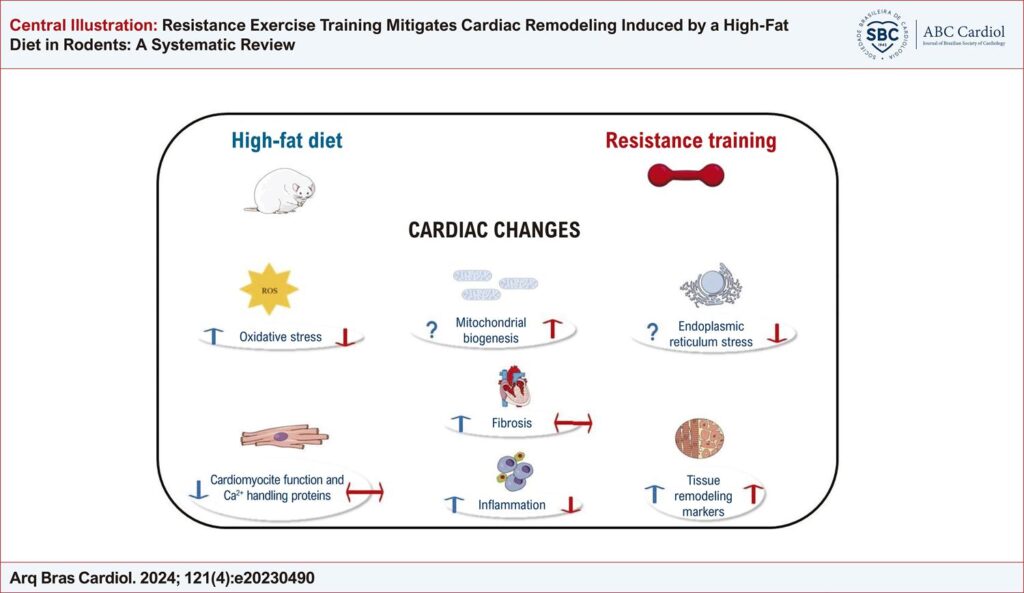Arq. Bras. Cardiol. 2024; 121(4): e20230490
Resistance Exercise Training Mitigates Cardiac Remodeling Induced by a High-Fat Diet in Rodents: A Systematic Review
This Original Article is referred by the Short Editorial "High-Fat Diet and Heart: What is the Real Impact of Resistance Exercise Training?".
Abstract
Background
Obesity is associated with the development of cardiovascular diseases and is a serious public health problem. In animal models, high-fat diet (HFD) feeding impairs cardiac structure and function and promotes oxidative stress and apoptosis. Resistance exercise training (RT), however, has been recommended as coadjutant in the treatment of cardiometabolic diseases, including obesity, because it increases energy expenditure and stimulates lipolysis.
Objective
In this systematic review, we aimed to assess the benefits of RT on the heart of rats and mice fed HFD.
Methods
Original studies were identified by searching PubMed, Scopus, and Embase databases from December 2007 to December 2022. This study was conducted in accordance with the criteria established by PRISMA and registered in PROSPERO (CRD42022369217). The risk of bias and methodological quality was evaluated by SYRCLE and CAMARADES, respectively. Eligible studies included original articles published in English that evaluated cardiac outcomes in rodents submitted to over 4 weeks of RT and controlled by a sedentary, HFD-fed control group (n = 5).
Results
The results showed that RT mitigates cardiac oxidative stress, inflammation, and endoplasmic reticulum stress. It also modifies the activity of structural remodeling markers, although it does not alter biometric parameters, histomorphometric parameters, or the contractile function of cardiomyocytes.
Conclusion
Our results indicate that RT partially counteracts the HFD-induced adverse cardiac remodeling by increasing the activity of structural remodeling markers; elevating mitochondrial biogenesis; reducing oxidative stress, inflammatory markers, and endoplasmic reticulum stress; and improving hemodynamic, anthropometric, and metabolic parameters.
Keywords: Cardiac Myocytes; esistance Training; High-Fat Diet; Systematic Review
983

